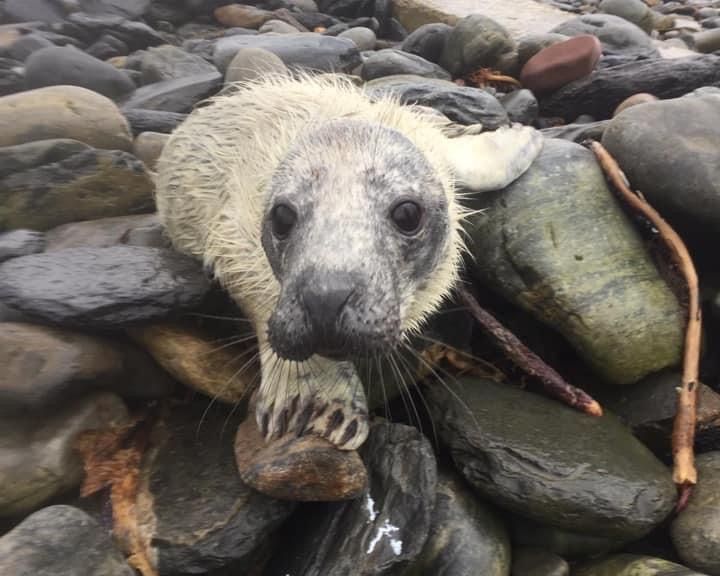Caithness Seal Rehabilitation and Release

Our Mission
Our mission is to help protect, rescue, treat and release both Common/Harbour seals and Grey seals along the Caithness Coastline.
How you can help

Donations
All donations are used to run the centre through the pupping seasons. These will include the costs for water, electricity, maintenance, food, cleaning/disinfecting products, veterinary visits & treatments. And of course the biggest cost being food, namely fish.
It can sometimes take up to four months to rehabilitate a pup ready for its release date. Possibly longer if there are any underlying problems.
We are a busy little hospital, have great staff and we are dedicated and love what we do.

Food
A grey seal’s (Halichoerus grypus) diet largely depends on what species are available in their surrounding environment, but around the UK coastline common prey species are sand eels, whiting and flatfish. They are therefore known to dive, as these prey species are benthic dwellers meaning they are usually found on the bottom of the seabed. Common/Harbour seals (Phoca vitulin) frequently congregate in harbours, bays, sandy intertidal zones, and estuaries in pursuit of prey fish such as salmon, menhaden, anchovy, sea bass, herring, mackerel, cod, whiting and flatfish, and occasionally shrimp, crabs, mollusks, and squid.
During the year we spend approximately £4000.00 to £6000.00 on fish alone. This is a great cost to cover and all donations are very much appreciated. Our supporters do fantastic work keeping the hospital going and the seal pups fed.

Care
Seals are cared for around the clock, 24 hours a day, seven days a week. They are fed four times a day starting off with rehydration fluids.
All pups are examined by our local vets before arriving at the hospital.
We are finding that a lot of pups are arriving at the hospital due to human interference, dog bites and injuries from being thrown around in bad storms.
They can arrive with minor injuries like bites or cuts, to severe injuries like head trauma, internal organ damage/failure and eye injuries/infections to name a few.
We know that other diseases are presenting themselves now that we are getting in more and more pups. Parapox Virus and Herpes virus to name two. We have also had cases where seal pups come in with Leptospirosis.

Did you know?
It is understood that seals use their whiskers to help them detect prey underwater – particularly if it’s murky or dark!

Help us continue our work.
Looking after these beautiful marine mammals is very important to us and every bit of support is much appreciated.
Contact us
Telephone: +44 1847851927
E-mail: sealrehabrelease2022@hotmail.com
Address: Windhaven, Brough, Caithness, KW14 8YE
Facebook page: Caithness Seal Rehab & Release